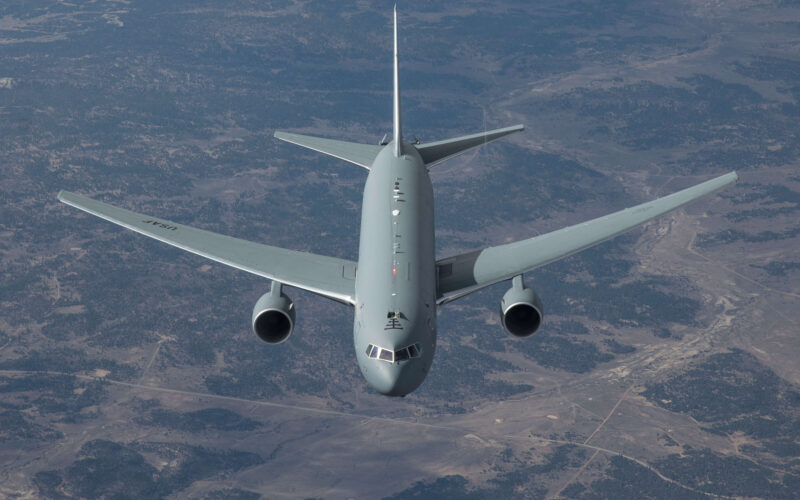The KC-46 Pegasus is banned from transporting cargo and personnel due to a safety deficiency. While the problem was identified, it appears that the fix could still be months down the line.
In September 2019, an incident revealed that the fasteners on the floor of the cargo hold may unlock during flight. As loose cargo could potentially injure or kill people on board and also affect the center of gravity of the aircraft enough to make its operation dangerous and cause an accident, a Flight Crew Information File was issued by the Air Mobility Command (AMC), and the aircraft manufactured by Boeing was prohibited from transporting any cargo.
The KC-46A, set to replace the Boeing KC-135 Stratotanker in service within the USAF since 1957, could still be limited to refueling operations for a while. Indeed, Will Roper, Assistant Secretary of the Air Force for Acquisition, Technology and Logistics, told the Defense Writer’s Group that the solution could still take months. “The issue with the locks was identified. We’re working options currently with Boeing and their supplier,” Roper said, quoted by Defense News.
While the KC-46 is in its Initial Operational Testing and Evaluation phase dedicated to identifying such deficiencies, this new Category 1 deficiency came as the latest in a long list of problems identified since the delivery of the first aircraft in January 2019.
Initially, it came to light that the “Remote Vision System” (RVS), developed by Rockwell Collins, does not work as intended, especially under certain light conditions. The RVS is composed of several sensors and cameras that should help a boom operator during aerial refueling. But the USAF has discovered discrepancies between the motion shown by the RVS and what was happening in real life. Boeing has agreed to fix the RVS at its expense, a process that could take three to four years.
Another problem was the design of the boom itself. During aerial refueling, both the tanker and the receiving aircraft must work together to connect the nozzle of the boom to the “receptacle” of the aircraft. However, multiple aircraft within the USAF, including the A-10 ground attack aircraft, were found unable to generate sufficient thrust to connect. Boeing was awarded $55.5 million by the USAF to fix it.
Throughout 2019, deliveries were also suspended twice due to quality concerns. Loose tools and foreign object debris (FOD) were found in the tankers received by the USAF, including in the closed compartments of their wings. The planes had been assembled at Boeing Everett Factory, the company’s biggest production plant.
In addition to the 179 KC-46 tankers that the USAF plans to acquire, Boeing has received an order for eight aircraft from Israel and two from Japan. The latter is currently seeking to increase its order by four additional planes.

